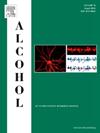应对策略是情绪失调与酗酒问题之间的中介。
IF 2.5
4区 医学
Q3 PHARMACOLOGY & PHARMACY
引用次数: 0
摘要
背景:流行病学研究显示,酒精使用的流行率很高,而且与情绪障碍的合并率也很高。本研究旨在探讨压力应对策略对情绪障碍症状与问题性饮酒之间关系的可能中介效应:样本包括 1014 名参与者(33.82% 为男性,66.17% 为女性),年龄在 18 岁至 75 岁之间(M = 33.0,SD = 15.15)。对以 LSB-50 测量的抑郁、焦虑和躯体化症状进行了三项中介分析,其中抑郁、焦虑和躯体化症状作为自变量,CSQ 的应对策略作为中介变量,以 AUDIT 测量的问题性饮酒作为因变量。此外,还将性别、年龄、教育程度和社会经济地位作为协变量:结果:在所有模型中,问题性饮酒都受到问题解决焦点和开放式情感表达的调节。然而,虽然抑郁症状是完全中介,但焦虑和躯体化症状却是部分中介:结论:所发现的相似性可能是由于情绪障碍之间存在共同的变异。结论:所发现的相似性可能是由于情绪障碍之间存在共同的变异。以 "关注问题解决 "为重点的干预措施可以改善情绪症状和酗酒问题。本文章由计算机程序翻译,如有差异,请以英文原文为准。
Coping-strategies as a mediator between emotional disorders and problematic alcohol use
Background
Epidemiological studies reveal a high prevalence of alcohol use and comorbidity rates with emotional disorders. This study aims to explore the possible mediational effect of stress-coping strategies on the relationship between symptoms of emotional disorders and problematic alcohol use.
Methods
The sample included 1014 participants (33.82% male, 66.17% female) aged 18–75 years (M = 33.0, SD = 15.15). Three mediation analyzes were carried out, for depressive, anxious and somatization symptomatology measured with the LSB-50 in which they acted as an independent variable, the coping strategies of the CSQ as a mediating variable and the problematic alcohol use, measured with AUDIT, as a dependent variable. Additionally, sex, age, educational level, and socioeconomic status were entered as covariates.
Results
In all the models, problematic alcohol use was mediated by Problem-Solving Focus and Open Emotional Expression. However, while in depressive symptoms was a fully mediation, in anxious and somatization symptomatology was partially mediated.
Conclusions
The similarities found may be due to shared variance between emotional disorders. Interventions focused on Problem-Solving Focus could improve the emotional symptoms and the problematic alcohol use.
求助全文
通过发布文献求助,成功后即可免费获取论文全文。
去求助
来源期刊

Alcohol
医学-毒理学
CiteScore
4.60
自引率
4.30%
发文量
74
审稿时长
15.6 weeks
期刊介绍:
Alcohol is an international, peer-reviewed journal that is devoted to publishing multi-disciplinary biomedical research on all aspects of the actions or effects of alcohol on the nervous system or on other organ systems. Emphasis is given to studies into the causes and consequences of alcohol abuse and alcoholism, and biomedical aspects of diagnosis, etiology, treatment or prevention of alcohol-related health effects.
Intended for both research scientists and practicing clinicians, the journal publishes original research on the neurobiological, neurobehavioral, and pathophysiological processes associated with alcohol drinking, alcohol abuse, alcohol-seeking behavior, tolerance, dependence, withdrawal, protracted abstinence, and relapse. In addition, the journal reports studies on the effects alcohol on brain mechanisms of neuroplasticity over the life span, biological factors associated with adolescent alcohol abuse, pharmacotherapeutic strategies in the treatment of alcoholism, biological and biochemical markers of alcohol abuse and alcoholism, pathological effects of uncontrolled drinking, biomedical and molecular factors in the effects on liver, immune system, and other organ systems, and biomedical aspects of fetal alcohol spectrum disorder including mechanisms of damage, diagnosis and early detection, treatment, and prevention. Articles are published from all levels of biomedical inquiry, including the following: molecular and cellular studies of alcohol''s actions in vitro and in vivo; animal model studies of genetic, pharmacological, behavioral, developmental or pathophysiological aspects of alcohol; human studies of genetic, behavioral, cognitive, neuroimaging, or pathological aspects of alcohol drinking; clinical studies of diagnosis (including dual diagnosis), treatment, prevention, and epidemiology. The journal will publish 9 issues per year; the accepted abbreviation for Alcohol for bibliographic citation is Alcohol.
 求助内容:
求助内容: 应助结果提醒方式:
应助结果提醒方式:


